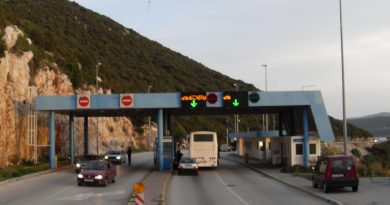Gang Leader “Barbecue” Becomes Haiti’s Most Powerful Leader after Prime Minister Resigns
Andrew Travis
Staff Writer
Jimmy “Barbecue” Chérizier, Haiti’s most prominent gang leader and former police officer, has reportedly filled the power vacuum left behind by Prime Minister Ariel Henry’s resignation. Henry took power in 2021 without an election following the assassination of then-Prime Minister Jovenel Moise, but CNN reports that Haiti has not held elections since. Barbecue’s ascension to power comes after almost a month of a state of emergency following an attack on Haiti’s largest prison that CNN says allowed nearly 3,500 inmates to escape.
Chérizier, who heads a gang federation made up of former rival gangs, claimed responsibility for the attack and other attacks around the country, CBS reports. He claims that he wants a revolution in Haiti. In an interview with Al Jazeera, he declared, “Now our fight will enter another phase – to overthrow the whole system, the system that is five percent of people who control 95 percent of the country’s wealth.”
The humanitarian situation on the Caribbean island is dire and is the direct result of gang-fueled chaos, according to the South China Morning Post. In a talk with CBS, Catherine Russel, UNICEF’s director, described the situation as “horrific” and a “scene out of Mad Max.” She said that getting aid to those suffering from severe hunger and malnutrition is currently impossible. Gangs now control swaths of Haiti’s capital, Port-Au-Prince, and roads leading out of the city.
Left unchecked with Chérizier’s rise to power, the rampage of the gangs has led to destruction, including power substations that led to extreme power outages, according to The Associated Press. Slums and other communities, as well as hospitals, are left without power as gangs loot and pillage at will.
The increase in gang violence also has led to the displacement of over 15,000 Haitians fleeing neighborhoods that have been raided by gangs, according to The Associated Press. Critical supplies are low, and as the main port in Port-au-Prince remains closed, the supplies cannot reach those in need.
Many U.S. Citizens remain in Haiti as gangs now control the airport in Port-au-Prince. ABC News reported that the U.S. State Department returned more than 30 Americans on a chartered flight on Sunday, March 17. The State Department announced that U.S. Passport holders should register on an intake form. By Monday, almost 1,000 Americans had filled out the “crisis intake form,” according to Fox News.
Prime Minister Ariel Henry’s resignation came as he was on a diplomatic mission to Kenya seeking peace-keeping support to regain control of Haiti. Henry’s leadership has been locally under question, and MSNBC reports that in February, Haitians took to the streets to demand his resignation.
Before Henry’s resignation, the UN Security Council had green-lit the deployment of foreign troops to reinforce the Haitian police and assist in confronting the Haitian gangs. However, The Associated Press reported that Kenya halted its plans for assistance following the dramatic flare-up of violence and Henry’s resignation. It intends to wait until the Transnational Council has formed to decide on a new president.
Politicians tapped for the council backed by Caricom, the Caribbean Community, and Common Market have backed out recently, making progress towards a new government nearly impossible, according to France24. Jean Charles Moïse, an ex-senator and presidential candidate, and Guy Phillipe, a former rebel leader, held a news conference Wednesday to announce the rejection of the proposed council backed by the international community. Chérizier also announced in an interview with Al Jazeera that he would reject any decisions made by a transnational council set up by CARICOM.
With gang violence continuing to increase and the fight for control of Haiti intensifies, the poorest Haitian people are suffering the most. Displacement, decreasing access to necessities, and fear of gang attacks have become a reality for the majority of Haiti’s population, the same people Chérizier claim he wants to help.
Image courtesy of Getty Images

